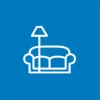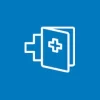Switzerland is an attractive place to live. More than 80,000 people moved here in 2024. Here, moneyland.ch explains the steps you have to take before and after you move to Switzerland.
1. Before moving to Switzerland
In order to take up residence in Switzerland as a foreign national, you have to be able to provide for yourself. Unless you are self-employed, receive a pension, or have enough wealth to cover your living costs, you will have to find a job with a Swiss employer. Demand for labor in Switzerland is particularly high in the hospitality, long-term care, and IT sectors. Online platforms like Jobs.ch, Jobscout.ch, and Indeed.com are widely used by Swiss employers, and enable you to search for job opportunities without having to actually visit Switzerland in person. In addition to the general job platforms mentioned above, there are also specialized websites for specific industries and job descriptions.
Once you have found a job and signed the employment contract, the next step is to look for a suitable home in Switzerland. Swiss residential properties are in high demand, especially in urban areas, so be prepared for heavy competition. Switzerland has well-developed public transportation, so even rural areas often have good connections to economic centers, healthcare, and schools. For this reason, it can be worth expanding your house hunting grounds to include less-populated regions as well. Real estate platforms like Comparis.ch, Homegate.ch, Immoscout24.ch, and Newhome.ch make it easy to find available housing and compare rents or property prices in different regions before you move. You can find useful tips in the guide to renting a home in Switzerland and the guide to boosting your chances of being accepted for a rental home.
If you want to buy a home in Switzerland, then you may need to apply for a special permit, depending on where you are from. Citizens of EFTA and EU countries do not need this permit, and have the same rights as Swiss when buying property in Switzerland.
2. During the move
- Declare your household goods in advance
When you move to Switzerland, you can bring household goods that you have owned for at least six months before the move. When you reach the Swiss border, you have to declare your household goods at the Swiss customs office by filling out a special form. You also have to provide proof that you have a home in Switzerland (by showing the rental agreement, for example).
If you want to bring a car or other vehicle with you, then you also have to declare the vehicle when first entering Switzerland. If you have pets, then you have to observe certain requirements when bringing them to Switzerland. You can check the requirements for importing pets using the simple tool from the Swiss Federal Food Safety and Veterinary Office.
- Register with your Swiss municipal government
You have to register as a resident at your Swiss municipality’s residents’ office within 14 days of moving to your new home. When you register, you have to provide the rental or purchase agreement for your home, as well as your employment contract. You will then receive a residence permit. You can find more information about the different categories of residence permits in the Swiss federal government’s official web page. A few weeks after you register, you will receive your residence permit identification card.
- Get mandatory Swiss health insurance
You have three months to choose and sign up for a basic Swiss health insurance policy. Once you have the insurance policy, you have to provide a copy to your municipal government. Basic health insurance is obligatory for all residents. If you fail to provide your municipal government with proof that you have mandatory health insurance within three months of arriving in Switzerland, then your municipality will choose a health insurance offer for you. The policy they choose may be more expensive than other available offers. The mandatory health insurance comparison on moneyland.ch makes it easy to compare offers and find the cheapest insurance for your needs and location. You can learn more about mandatory Swiss health insurance in this guide.
A checking account, which is simply called a private account or personal account in Switzerland, is a bank account for everyday financial transactions. Once you have legal residence in Switzerland, you can generally open a Swiss bank account without any issues, although some banks may have additional requirements for citizens of certain countries. You can choose between conventional banks that have their own branch offices and ATMs, and neobanks which do not have branch offices of ATMs, but often have lower fees. Many Swiss banks offers bank packages that include a private account, debit card, credit card, and a savings account. The bank package comparison on moneyland.ch makes it easy to compare bank package offers.
3. After the move
One of the first insurances you should get after moving to Switzerland is personal liability insurance. If you own expensive items, then getting household insurance can be beneficial. If you own a vehicle, you have to register it at your canton’s road traffic authority and get Swiss car insurance.
- Get a mobile plan and home Internet
If you live in Switzerland, it is advisable to use a mobile plan from a Swiss telecom company. Until you receive your residence permit, you may only be able to get a prepaid SIM. You can find more information in the expat guide to Swiss mobile plans. If you need fast Internet at home, then getting a home Internet plan is also recommended. You can compare Swiss mobile plans and Swiss home internet plans on moneyland.ch. Many Swiss telecom companies also offer packages that bundle TV, a landline telephone connection, and home Internet. You can learn more about these in the guide to Swiss bundled telecom packages. You can compare offers using the telecom package comparison.
- Exchange your driver’s license
If you have a driver’s license, you have to exchange it for a Swiss driver’s license within one year of moving to Switzerland. You can do this at your canton’s road traffic authority. You need to have your vision tested by a Swiss optometrist or eye doctor. You must submit the eyesight certificate to the road traffic authority along with your foreign driver’s license when you apply for the exchange. Depending on which country issued your existing driver’s license, you may also be required to take a driving examination as part of the process of swapping your foreign license for a Swiss one.
- Analyze your tax situation
During your first five years of living and working in Switzerland, your taxes are deducted directly from your salary by your Swiss employer in the form of a withholding tax. That applies unless you are married to a Swiss citizen or permanent resident. Each canton has its own withholding tax rates. These are based on the average tax rate across all municipalities in the canton.
You generally are not required to submit tax returns during the first five years, though you may do so voluntarily. However, you will be required to complete tax returns if you meet any of these criteria: You earn more than 120,000 francs per year; your personal wealth (worldwide) exceeds 80,000 francs (160,000 francs for a couple); you earn additional income of 3000 francs or more on the side, apart from the salary for which withholding tax is deducted. In these cases, your taxes will be calculated individually, accounting for the withholding tax that was already deducted by your Swiss employer.
Unless you submit tax returns – either voluntarily or because you are required to – you generally do not have to fuss with taxes at all. Everything is handled by your Swiss employer. However, it can be worth analyzing your tax situation to see if submitting tax returns could save you money on taxes. Whether or not submitting tax returns is more favorable than withholding tax depends on your specific situation. As a general guideline, withholding tax is often cheaper in cantons that have relatively high taxes, while the standard tax rates used for tax returns are often lower than withholding tax rates in low-tax cantons.
- Get to know the Swiss retirement system
The Swiss retirement planning system is built around three pillars: Social old-age insurance (pillar 1), occupational pension funds (pillar 2), and private retirement savings (pillar 3). Social old-age insurance is mandatory for all residents. Occupational pension funds are mandatory if you are employed by a Swiss employer, and your salary exceeds a certain minimum threshold. But in addition to mandatory retirement savings, it can be beneficial to use the voluntary, tax-privileged pillar 3a as well. There are limits on how much you can contribute to the pillar 3a every year. The downside is that money you place in pillar 3a accounts is blocked until you reach retirement age, unless you meet one of these criteria to qualify for an early withdrawal:
- You become self-employed.
- You need the money to buy a primary residence.
- You leave Switzerland.
- You need the money to close gaps in your pension fund.
- You become entitled to receive a full Swiss disability pension.
Saving with the pillar 3a can be beneficial in two ways. Firstly, you save up money for retirement. Secondly, contributing money to the pillar 3a may result in your paying less taxes. Whether or not you will pay less taxes by saving with the pillar 3a depends on your specific situation.
More on this topic:
New in Switzerland: A welcome guide
Leaving Switzerland: Financial questions and answers
Compare Swiss bank packages
Compare Swiss mandatory health insurance
How to choose the right personal liability insurance
The expat guide to Swiss mobile plans


 Deal of the Day
Deal of the Day 






